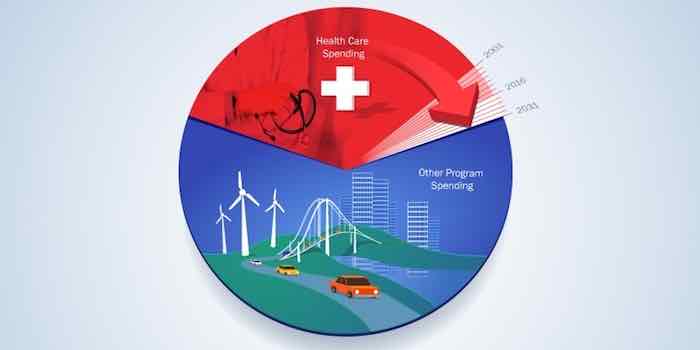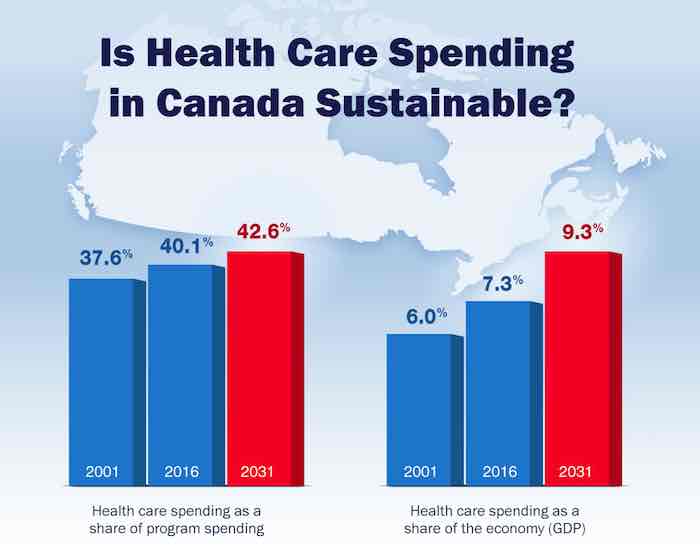The Sustainability of Health Care Spending in Canada, 2017
Health-care spending more than doubled since 2001; projected to keep growing
 VANCOUVER
VANCOUVER—Health-care spending by provincial governments has increased by 116 per cent since 2001, and even though increases have slowed recently, health care is projected to consume an even larger portion of program spending over the next 15 years, according to a new study released today by the Fraser Institute, an independent, non-partisan Canadian public policy think-tank.
“Following more than a decade of marked health-care spending increases, Canadians may wonder why historically long wait times and a lack of access to doctors and life-saving equipment remain staples of Canadian health care,” said Bacchus Barua, senior economist for health-care studies at the Fraser Institute and co-author of
The Sustainability of Health Care Spending in Canada, 2017.
The study finds that from 2001 to 2016, health-care spending increased across Canada by 116.4 per cent.
In Alberta, which had the largest increase over the 15-year period, health-care spending grew by a staggering 191 per cent—almost doubling GDP growth—followed by Saskatchewan (137 per cent), Manitoba (123 per cent) and Ontario (114 per cent).
By 2031, the study estimates health-care spending will consume 42.6 per cent of all provincial program spending (on average), up from 40.1 per cent in 2016 and 37.6 per cent in 2001.
In fact, over the next 15 years, four provinces are expected to eclipse the 45 per cent mark—British Columbia (47.2), P.E.I. (47.1), Ontario (45.4) and Nova Scotia (45.3).
And when measured relative to the size of the economy, health-care spending is also on the rise. While provincial health-care spending (in total) represented only about 6.0 per cent of Canada’s GDP in 2001, it is projected to grow to 9.3 per cent by 2031.
“As health-care spending continues to grow, and consume a larger share of provincial program spending and the economy, there’s either less money available for other important priorities or governments may have to raise taxes and/or run deficits to cover the increasing costs,” Barua said.
MEDIA CONTACT: Bryn Weese, Media Relations Specialist, Fraser Institute,
bryn.weese@fraserinstitute.org

Fraser Institute -- Bio and
Archives |
Comments
The Fraser Institute is an independent Canadian public policy research and educational organization with offices in Vancouver, Calgary, Toronto, and Montreal and ties to a global network of 86 think-tanks. Its mission is to measure, study, and communicate the impact of competitive markets and government intervention on the welfare of individuals. To protect the Institute’s independence, it does not accept grants from governments or contracts for research. Visit fraserinstitute.org.
Follow the Fraser Institute on Twitter | Like us on Facebook
